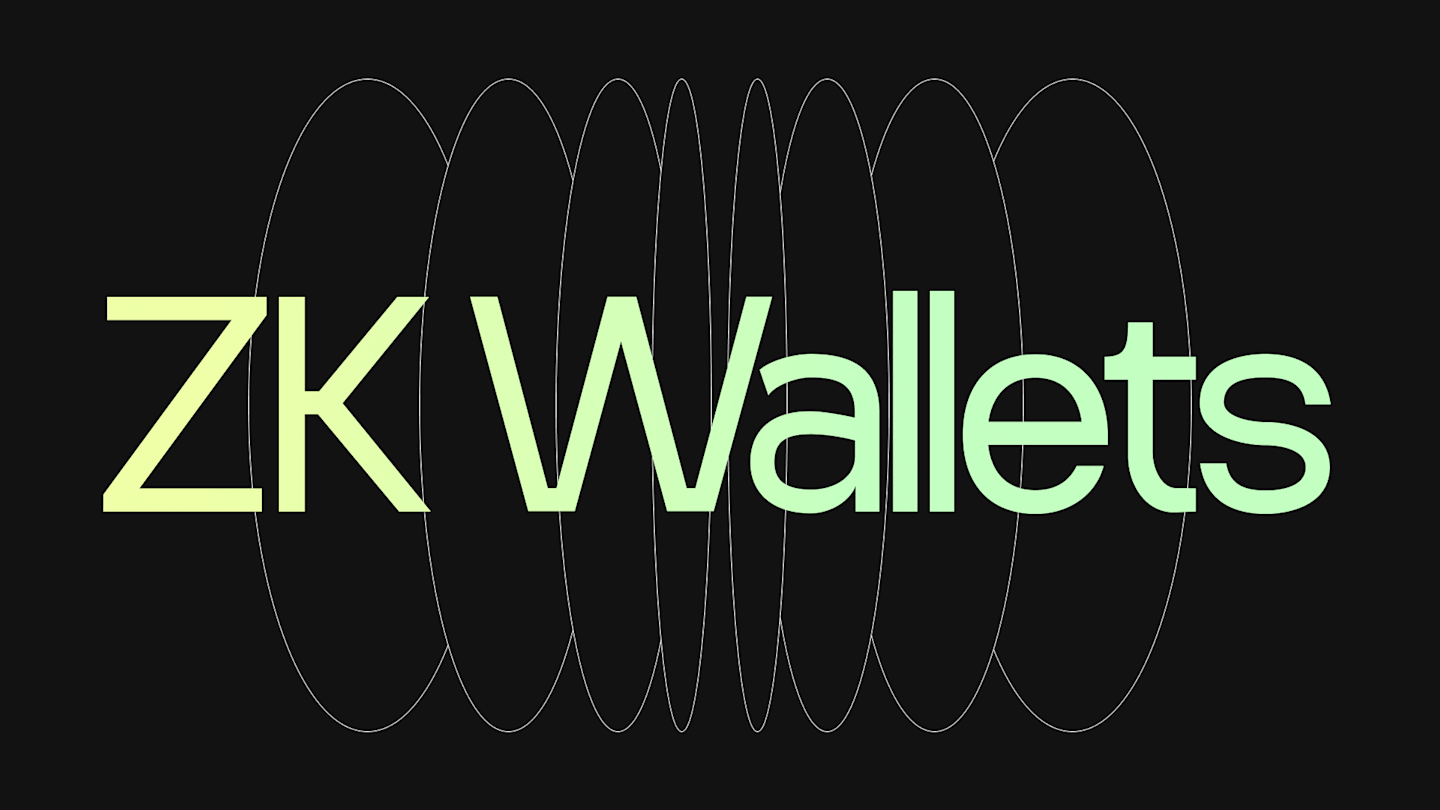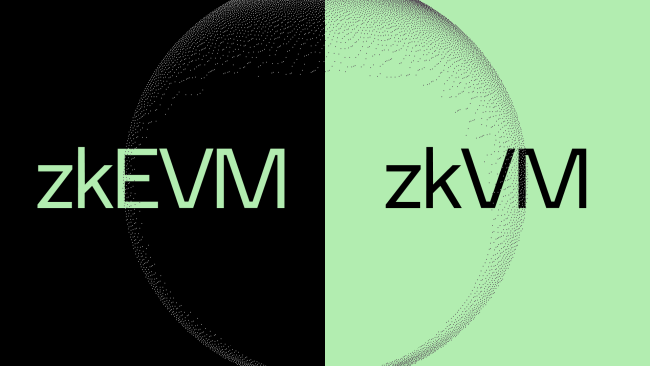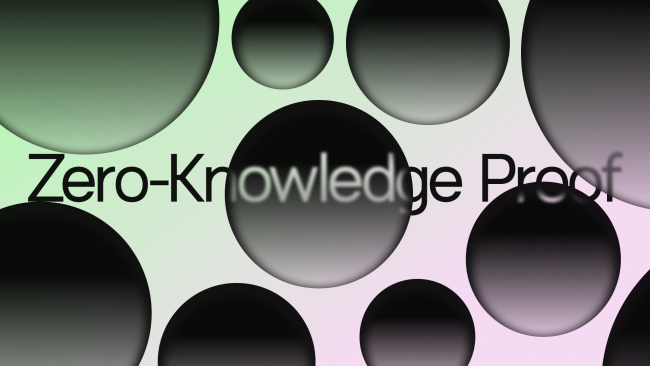How zero-knowledge powers the future of blockchain wallets

Blockchain wallets are one of many innovative approaches to finance made possible by decentralization. But if blockchain technologies are going to reach full mainstream adoption, they must eventually be able to process billions of transactions and users cost efficiently and competently.
Zero-knowledge proofs (ZKPs) creates a path for doing so, with Aleo’s zPass paving the way for blockchain wallets that can provide users with the financial flexibility and opportunity they want while being able to still prove compliance to outside parties.
A leap forward for decentralized finance
ZK wallets flip the model of traditional blockchain wallets on their head. Typically, the chain holds the ‘state” of transactions for blockchains, and wallets are signing mechanisms to approve transactions. On Aleo, the entire chain is encrypted, and only the individual wallet can check the chain to see what assets belong to it and create transactions.
“Zero-knowledge cryptography integrated within a distributed system creates an environment where the user’s privacy is preserved online,” said Zack Xuereb, an engineer at the Aleo Network Foundation.
Compared to other blockchain wallets, ZK wallets take on more responsibility of decrypting, checking ownership, and creating transactions, in addition to showing your assets. What's normally done by an indexer must now be done by a wallet. The benefit is that less user data is exposed publicly, and transactions can be done faster and more effectively.
Increased financial control
It��’s fun sharing photos or ideas online, but one thing few of us want to share is a record of our financial transactions. ZK wallets encrypt your private data locally on your personal device, such as a phone or laptop, before submitting the ZK proof on the Aleo blockchain. Users can choose what information to disclose, giving them more control over their financial data.
This ensures top levels of privacy compared to other crypto wallets, says Barron Caster, Co-Founder and CEO of Demox Labs, the creator of Leo Wallet. “Other wallets do not have this level of privacy and security, and many cut corners by sharing your wallet's view key with others when they delegate the harder work of creating transactions to make things easier,” he says. “The view key gives access to view your assets and transaction history forever, which runs in the face of privacy.”
This also enables new use cases for users and onchain orgs compared to other crypto wallets, says Matthew Wyatt, Co-Founder and CEO of Puzzle, creators of Puzzle Wallet. “Puzzle Wallet and the Puzzle Arcade offer a way for on-chain orgs to give merchandise, discount codes, giveaways and raffles to users on-chain without revealing the discount codes or transaction details in a trustless non-custodial manner. Other non-ZK wallets and chains can’t offer this without introducing some trusted custodian for holding private state, ZK proving or transaction finding.”
Greater efficiency
Traditional blockchain wallets often involve extensive computational processes to validate and confirm transactions. ZKPs, on the other hand, are succinct and can be verified quickly, resulting in faster transaction processing times and reduced computational requirements for network participants.
Leo Wallet, for example, uses WebGPU to tap into your personal device’s hardware to massively accelerate local proof generation speeds on your machine. It handles the public/private conversation in the background, so you don’t have to worry about your assets' state when sending them. “We have essentially created a gaming engine from scratch to make your experience faster,” Caster says.
Puzzle takes advantage of local, cheap zero-knowledge proving with their ZK wallet to bring new games and org storefronts on-chain that have traditionally been priced out. Users doing edge compute micro-rollups combined with cheap, trustless ZK verifying and state storage on Aleo now makes simple games like Sudoku and simple storefronts offering discounts possible.
Better defense against bad actors
Most blockchain wallets operate by making transaction details such as sender addresses, receiver addresses, and transaction amounts, public. This information can be exploited by attackers who might attempt to intercept or manipulate transactions, or launch targeted attacks.
In conventional wallets, the visibility of transaction details poses a risk of theft, especially if sensitive information falls into the hands of malicious actors. For example, if a wallet's address is associated with large transactions or substantial holdings, it could become a target. Zero-knowledge wallets, on the other hand, conceal these sensitive transaction details, making it significantly more difficult for attackers to identify and target specific transactions or users.
More user control and possibilities with multiparty computation
Multiparty computation (MPC) is a cryptographic technique that enables secure collaboration and computation among several parties while safeguarding the privacy and confidentiality of their inputs. MPC ensures that users' private keys are never shared in their entirety, preserving the confidentiality of their keys and transactions.
Matt says they’ve created a novel additional benefit: a private, verifiable multiparty state that can be used in adversarial environments, such as games with hidden information. “In MPC multisigs, the signing parties are aligned in incentives to execute state transitions,” Wyatt said. “This is not the case in simple games such as Battleship where one user is incentivized to rage quit before revealing their ship has been hit. Thanks to Aleo’s programmable privacy and Puzzle Wallet’s multiparty features, we can have games in the Puzzle Arcade like Where’s Alex.”
Meet the wallets powered by ZK
Blockchain wallets, including Leo Wallet and Puzzle, epitomize the incredible progress made over the past two decades, offering a future where anyone with an internet connection can manage financial transactions independently of traditional banking institutions while still remaining secure and compliant. Explore our ecosystem page to see why zero-knowledge is essential for DeFi, identity, and more.


